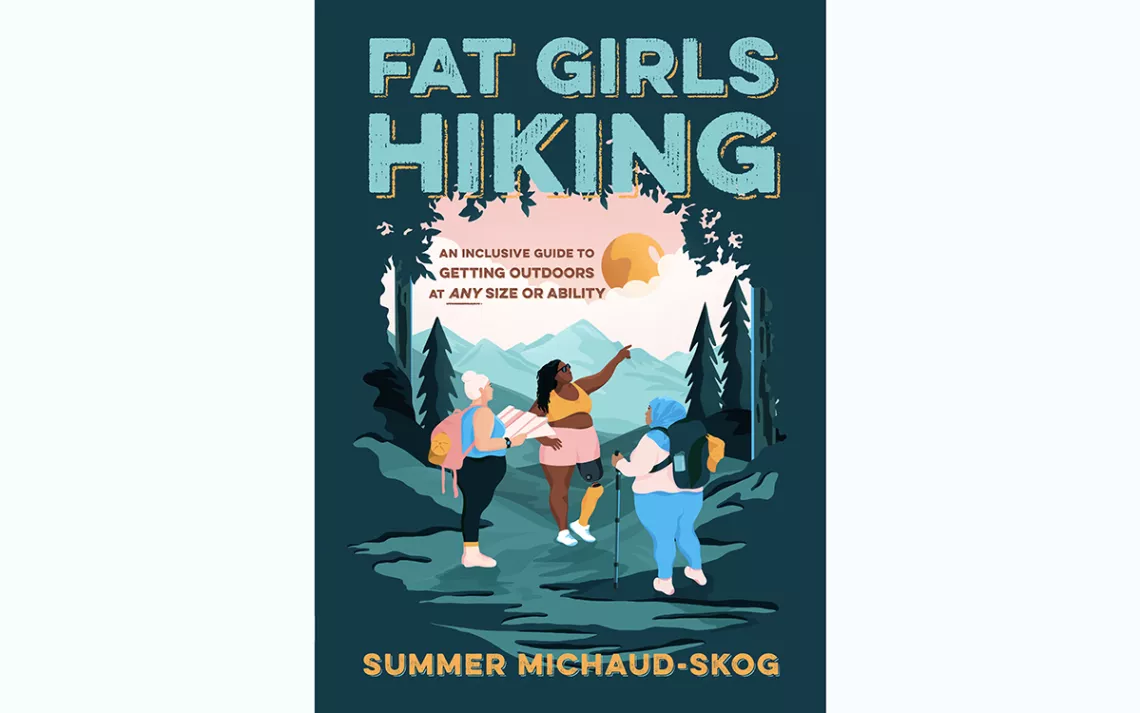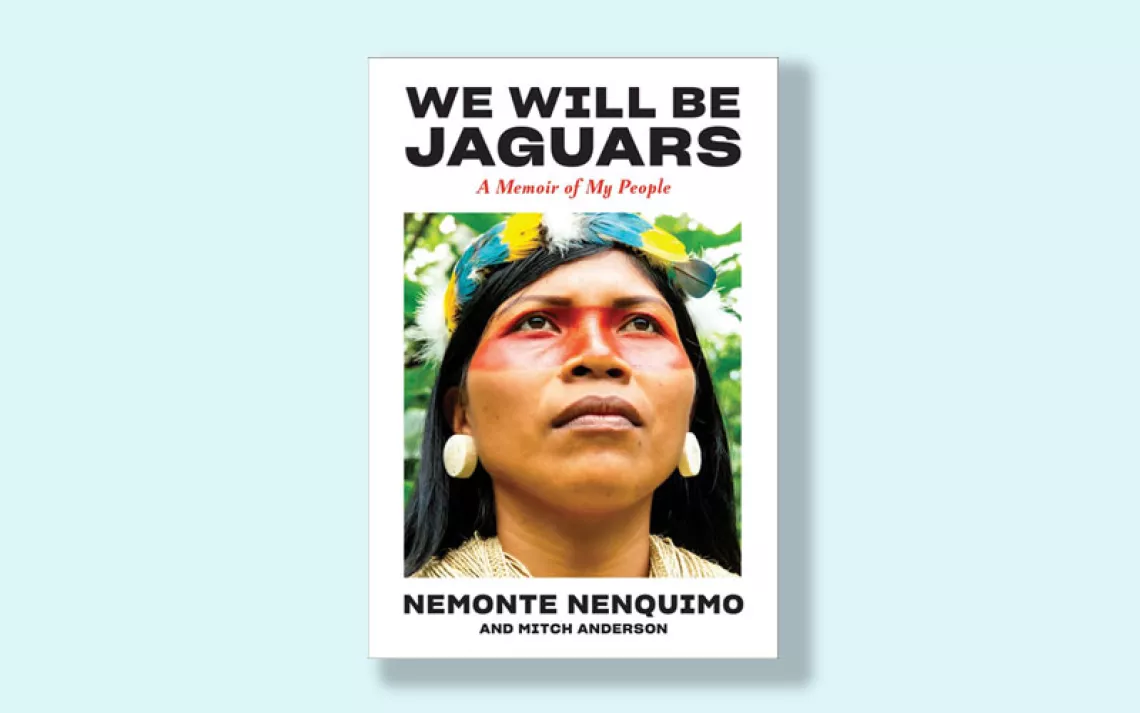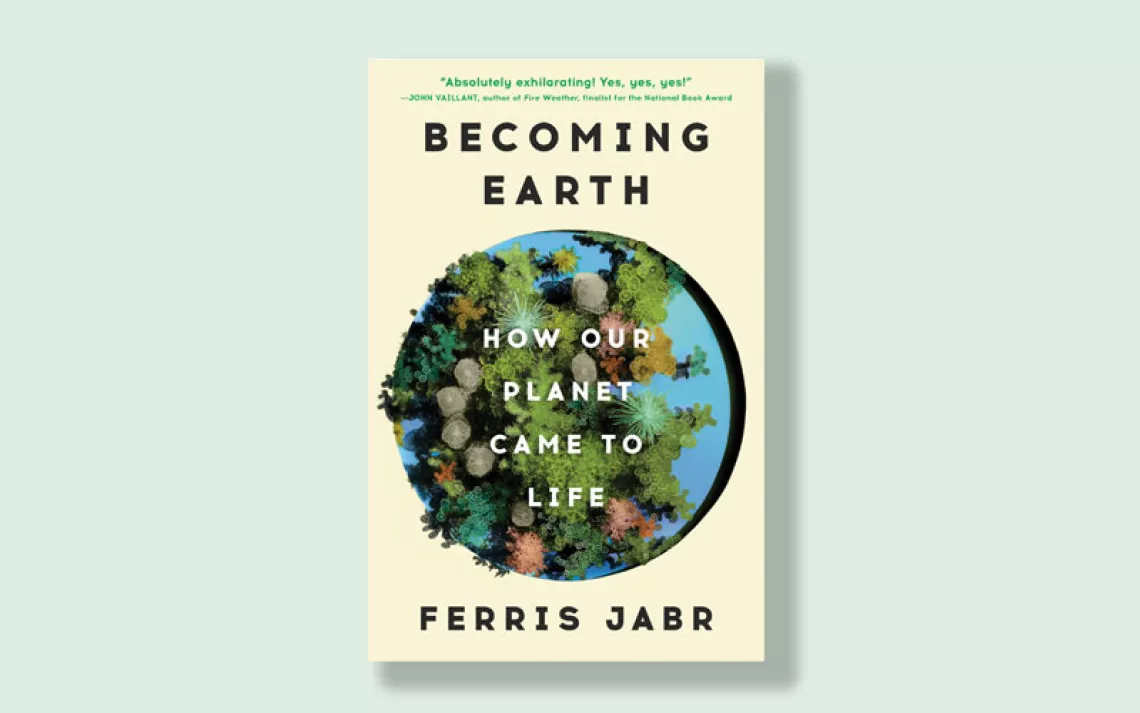Fat Girls Hiking: The Movement—and New Book—to Prioritize "Trails, Not Scales"
Founder and author Summer Michaud-Skog opens up to Sierra

We like to believe the outdoors is a resource for all. But the enduring lack of plus-size gear, coupled with the outdoor recreation community’s historic reluctance to embrace all sizes, has become a major barrier for fat people wanting to enjoy themselves in outside spaces. Released this spring, Summer Michaud-Skog’s Fat Girls Hiking: An Inclusive Guide to Getting Outdoors at Any Size or Ability, aims to empower experienced and aspiring hikers alike. The book by the self-proclaimed “queer, fat, white tomboy femme and feminist” is filled with heartfelt stories, practical advice, helpful trail reviews, and personal profiles of members of Fat Girls Hiking, a community the author started in 2015 after her eponymous Instagram feed struck a chord and took off in a big way.
“When I started hiking in 2013, it was mainly because I was going along with someone I was dating at the time,” Michaud-Skog told Sierra. “I remember being on the trail, wondering why I was doing it, because it wasn’t fun for me. Slowly, nature got to me, and my bad attitude melted away. I got really into it and started making lists of places I wanted to see, hike, and camp.”

Later, on one hike with a girlfriend, Michaud-Skog noticed that fellow hikers looked at the pair strangely. She didn’t know whether it was because she was heavily tattooed, because they were lesbian, because they were fat, because her girlfriend was Latina, or perhaps the combination of it all. They made up a song that they were “just two fat girls hiking,” and the idea was born. It began with a hashtag (#FatGirlsHiking), advanced to an Instagram account, morphed to include real-life meet-ups and group hikes over the years, and now counts 37 Fat Girls Hiking chapters around the world.
“Once I got into hiking, I started to get more confident and realized that I could embrace hiking solo, as well, because I didn’t have to manage my pace. I was connecting to myself, listening to my intuition, and learning to trust myself and my body,” Michaud-Skog says. “I didn’t expect that. Ultimately, hiking turned into a passion.” The expectation to keep up on the trail or be a certain fitness level can affect someone’s enjoyment of the outdoors. Once individuals let go of even their own expectations and allow themselves to be in the outdoors at the pace they choose, she explains, they’re able to understand the true feeling of what hiking is like for them.
A common thread among the hikers featured in the book is the significant barrier found in finding good technical outdoor gear in plus sizes. While the industry is slowly improving in this area, many plus-size people have had to become more creative in finding what works for them. Tips scattered through the book stemming from Michaud-Skog’s experience address the benefits of fabric and proper footwear, as well as how to find a backpack with the right fit—but without telling hikers what they should wear.
“I prefer leggings and dresses,” says Michaud-Skog. “I remember getting looks and questions about why I was hiking in a dress, and it’s simply because I feel comfortable in a dress. I had to let go of worrying about what people would think of me. I realized that I can just be myself and wear what I want and feel good in whatever I happen to be wearing at the time. It was the confidence I got through hiking that helped me do that.”
It’s that compassionate voice that’s so compelling, especially in sections where Michaud-Skog advocates for summoning the bravery it takes to talk with a store’s employees to find the right gear. When someone doesn’t see people who look like them in the outdoors, that lack of representation gives off the impression that they’re not welcome. And that experience carries into indoor spaces too. Everyone deserves outdoor gear that fits and works for them.
As the Fat Girls Hiking meet-up and group hike offerings evolved, Michaud-Skog says that at times she was faced with redefining success, like when events attracted few participants. “I consider success to be even just one person showing up,” she says. “To me, it’s enough that those who are there are having a good time, and connecting with each other and the nature around us. Building those bonds is meaningful, and those connections can be healing and don’t have a number requirement. Talking with others about how we can heal from fat oppression brings me back to myself and reminds me why I’m here.”
An important rule with Michaud-Skog’s group hikes is making sure others feel sufficiently comfortable to honor their needs and their bodies’ needs, and to know they can turn around anytime they chose without feeling judged for not attaining a certain distance or an end goal. Even as an experienced hiker, she doesn’t always feel comfortable. Encouraging an environment where all have the freedom to enjoy the trail, and the company, until they’re done helps break down the assumption that stopping is quitting.
How can we ensure that all feel welcome in the outdoors? Think about even the simplest of interactions, advises Michaud-Skog. “For plus-size people, it’s common to be out hiking, and a stranger will try to be encouraging without having any idea about our ability or experience,” she says. “They’ll say, ‘You got it! You’re almost there!’ When we’re the only fat person in the group, that comment will be directed to us and not our friends. It’s as if they can’t believe that a fat person would be on a strenuous trail or attempting an intense uphill section. Even if they mean well, it feels patronizing.”
She also suggests that people keep in mind that when they’re offering group hikes to the general population, there will be a variety of speeds among those who show up. If you’re not specific in the invitation by listing expectations in terms of difficulty level or speed, there are likely going to be people who feel they’ve been left behind. Michaud-Skog leads from behind on her group hikes, so nobody feels they’re too slow. “For me, it’s not a race to a destination,” she says. “It’s more about the connection to nature, myself, and each other.”
 The Magazine of The Sierra Club
The Magazine of The Sierra Club



